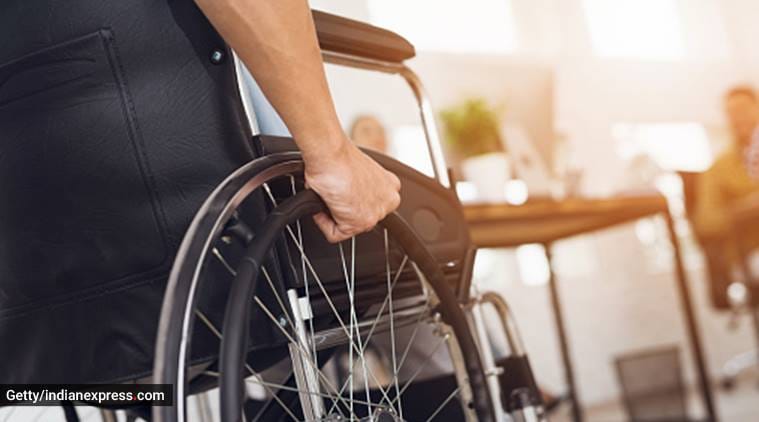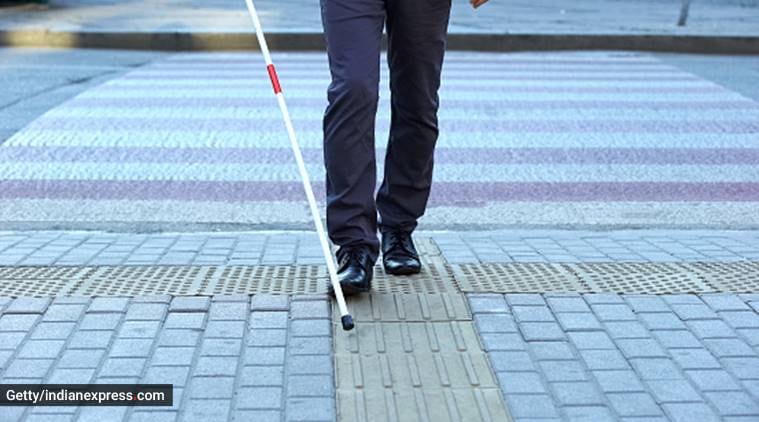 Many commonly used online apps are inaccessible to the disabled. (Source: getty images)
Many commonly used online apps are inaccessible to the disabled. (Source: getty images)
Social distancing has become the new normal in the wake of the coronavirus pandemic. It is what most of us are trying to follow to keep ourselves safe from the virus. In turn, it has left people with disabilities feeling even more vulnerable now that they are unsure if others would want to assist them.
With Unlock 1.0 being announced, most caretakers or attendants for persons with disabilities have been able to return to work and help with their regular needs. For the disabled, however, the pandemic has posed another obstacle when it comes to stepping out of their homes. Disability activist Nipun Malhotra, who was born with arthrogryposis, a rare congenital contracture, told indianexpress.com, “I am also on the wheelchair and for many of us, there is this fear that if we go out on the roads, there will be nobody to assist.”
‘People would be hesitant to help us due to social distancing’
Vineet Saraivala, who is visually impaired, believes that for the blind, the lockdown is not yet over. “People like me do not drive personal vehicles so they are completely dependent on public transport or cab services, which is not a safe option at the moment, and has also been halted in many places. People with blindness are highly dependent on others to assist them, especially in a public place but that is also affected now because of social distancing,” he said.
United Nations Secretary-General Antonio Guterres recently said in a video message that about one billion people with disabilities have been hit hard by coronavirus, further intensifying the inequalities they have already been grappling with. “Our lives were already tough but the pandemic has only added to the challenges,” Vineet agreed.
 Social distancing has posed new challenges for the disabled now that people would be hesitant to assist them. (Source: getty images)
Social distancing has posed new challenges for the disabled now that people would be hesitant to assist them. (Source: getty images)
The risk of exposure to the virus has motivated people to shift to contactless delivery which means a lot of the purchase, from groceries to medicines, has moved online. But the mobile apps that we regularly use for this purpose are unfortunately not disabled-friendly. “These mobile apps are not accessible to us, including Aarogya Setu app, although we are expected to have it on our phones,” Vineet pointed out. If orders cannot be placed online, one has to go to a store. “But even there, the people around would be more hesitant to help us because there is touch involved. Personally, I am not so bold enough to try this immediately,” he added.
Again, in case of the blind in particular, Vineet said they are mostly unaware of what surface they are touching like the sides of the staircase or elevators. “So that is a huge concern for us,” he said.
‘No access to information’
For those with hearing disability, the post-lockdown phase has not brought much change either. To begin with, not many are aware of the new guidelines announced after Unlock, said Pradeep More, general secretary, State Level Association of the Deaf (SLAD), Maharashtra, as told to indianexpress.com by interpreter Tasleem Sheikh. One of the prime reasons for this is the inaccessibility to information with no sign communication available, making it all the more challenging for them as compared to those with other disabilities. So recently, More himself stepped out one night to buy groceries without being aware of the lockdown restrictions in the area until he was stopped by the police.
“The deaf community is not fully aware of how things have changed after Unlock 1.0. There has not been any communication for people like us; we do not have access to news channels. Most of us are unaware of the guidelines. The little we know is from what we ,have been told by our family members. Most of the people in the deaf community are still at home, they are yet to start going to office,” More said.
Challenges in work from home
The challenges have percolated in their professional lives too. Work from home is not an easily accessible option for many persons with disabilities. “Companies need to reorient themselves and aggressively start looking at work-from-home talent,” said Nipun.
However, online video calls or meetings that have become an integral part of work from home are not equipped for the disabled. “Since most of the online applications are not accessible, it is double whammy for us. My company calls happen online but again, there is no accessibility. For instance, the presentations that people share online are not accessible. That is something we have to cope with in the corporate set up,” said Vineet.
“In the new normal, companies will have to look at accessible technologies for work from home and even for online education, right from the beginning,” Nipun expressed.